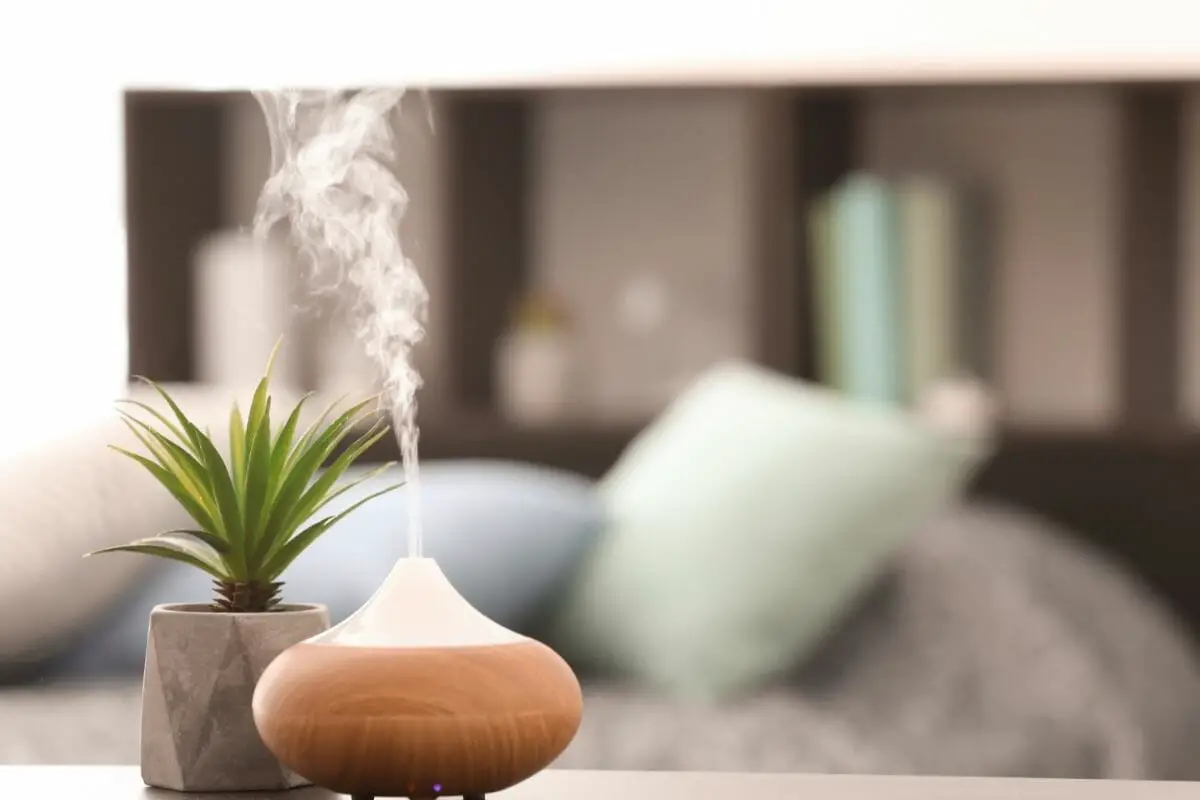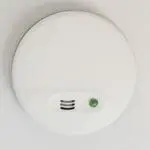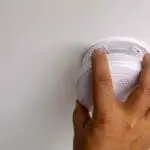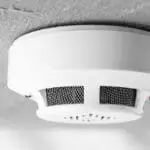Smoke detectors may be small but they are an absolute must-have in every home. Smoke alarms make sure that you instantly know when there is a fire in your home.
In many rented homes, smoke alarms are even a requirement as part of a rental agreement because they are an essential part of your home.

If you also use a humidifier to balance the humidity levels in your home, then you may have noticed that your smoke alarm goes off more often.
But can a humidifier in your home really set off a smoke alarm? After all, humidifiers do not produce smoke but water.
Let's find out more about the effects of a humidifier on a smoke detector.
Can Humidifiers Set Off A Smoke Detector?
Smoke detectors are very sensitive devices that do not only detect smoke but also other particles, such as the water molecules from a humidifier.
So, yes humidifiers can set off smoke alarms. While humidifiers may not look like they create a lot of steam, there is a good reason why they affect smoke detectors.
Humidifiers create very small water droplets that are so light that they float in the air. This means that they can then also end up on the sensors of the smoke detector.
Smoke alarms are very sensitive, and they cannot distinguish between the moisture particles from the humidifier and smoke caused by a fire.
Both these particles lead to the same reaction in the smoke alarm which leads the device to beep loudly.
What Humidity Setting Triggers A Smoke Alarm?
Different humidity settings may trigger your smoke alarm. Depending on your humidifier, a smoke alarm is typically set off at a room humidity level of 85%.
Cool mist humidifiers and other types of humidifiers continually release a fine water mist which triggers the smoke alarm relatively quickly.
What Type Of Smoke Alarm Is More Sensitive To A Humidifier?
There are generally two types of smoke alarms: ionized smoke alarms and photoelectric smoke alarms.
These smoke detectors use slightly different technology. Both are very sensitive to the fine water droplets that a humidifier releases.
Let’s take a look at each type of smoke alarm, and see which one is better.
Ionized Smoke Alarms
Ionized smoke alarms contain a small amount of radioactive material which is consistently ionizing the air inside a couple of detector plates.
When smoke particles float through the air, they pass through this ionized air which disrupts the electric current in the detector plates.
When these plates detect either smoke or water particles, the smoke alarm goes off.
Ionization smoke alarms aren’t as popular as they used to be. This is mainly because of their radioactive content which is difficult to dispose of.
In addition, it has been found that ionization smoke detectors also trigger more false alarms, such as with a humidifier.
Photoelectric Smoke Alarms
This type of smoke alarm is much simpler than the ionized smoke detector. In a photoelectric smoke detector, you have a couple of sensors.
Between these sensors, a light beam passes through.
When the sensor is disrupted by a water molecule or smoke particle, then the alarm is triggered and the detector beeps.
Although both types of smoke alarms detect fires, a photoelectric smoke alarm is a lot more reliable and doesn’t trigger as many false alarms.
This means that it is easier to use in a room or house with a humidifier.
How To Reduce False Alarms Of A Smoke Alarm By A Humidifier

Although you cannot entirely avoid false alarms when a smoke alarm and a humidifier are in the same room, there are quite a few things that you can do to minimize false alarms.
Adjust Sensitivity Levels Of Smoke Alarm
This may not apply to some older models of smoke detectors but most modern smoke alarms have an option to change the sensitivity levels.
Check if your smoke alarm has this built-in functionality and use it. It’s important to read the manual before you adjust the settings.
You need to find the right balance between avoiding false alarms and making sure that the smoke alarm will go off when there is a fire.
Use Different Smoke Alarms
Depending on where your humidifier is in the house, it can be a good idea to use different types of smoke alarms in different rooms.
As mentioned above, photoelectric fire alarms are slightly less sensitive than the ionization smoke detector.
This means that you can put a photoelectric fire detector in the room where the humidifier is, and use ionization detectors in the rest of the house.
Keep Humidity Levels Low
The best way to keep your smoke alarm from going off due to a humidifier is to ensure that the humidity levels are below 85%.
Any higher than that and your smoke alarm will detect the water particles of the humidifier in the air.
Most humidifiers have an option to adjust the humidity levels. Alternatively, you may also want to consider using your humidifier only when you need it.
If you use your humidifier only occasionally, then the humidity level in your home will stay lower naturally.
Maintain Your Smoke Detector
If you regularly use your humidifier, then water droplets will accumulate on the outside of the smoke alarm.
This can cause the smoke alarm to go off without a fire. That’s why it's important to make sure that you keep your smoke alarm clean and dry at all times.
Conclusion
Smoke alarms are essential devices that need to work when a fire breaks out.
The earlier a smoke detector goes off, the more chance that human lives and property can be saved.
This means that smoke alarms need to detect even the smallest particles, including water molecules from a humidifier.
While a smoke detector will go off when the humidity levels in your home increase to above 85%, there are some simple measures you can take to avoid false alarms, including keeping the humidity levels as low as possible.








